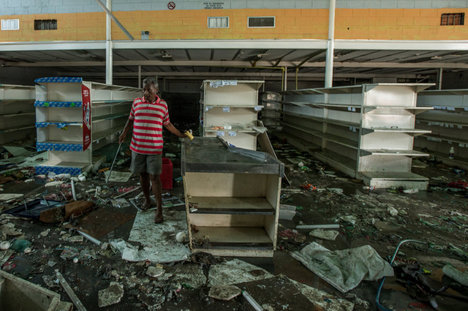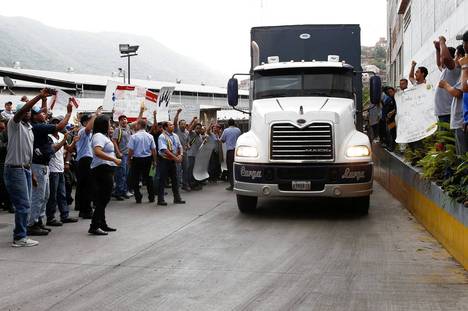(p. A19) Conspicuous by its absence in much of the mainstream news coverage of Venezuela’s political crisis is the word “socialism.” Yes, every sensible observer agrees that Latin America’s once-richest country, sitting atop the world’s largest proven oil reserves, is an economic basket case, a humanitarian disaster, and a dictatorship whose demise cannot come soon enough.
But … socialist? Perish the thought.
Or so goes a line of argument that insists socialism’s good name shouldn’t be tarred by the results of experience.
. . .
Government overspending created catastrophic deficits when oil prices plummeted. Worker co-ops wound up in the hands of incompetent and corrupt political cronies. The government responded to its budgetary problems by printing money, leading to inflation. Inflation led to price controls, leading to shortages. Shortages led to protests, leading to repression and the destruction of democracy. Thence to widespread starvation, critical medical shortages, an explosion in crime, and a refugee crisis to rival Syria’s.
All of this used to be obvious enough, but in the age of Alexandria Ocasio-Cortez it has to be explained all over again. Why does socialism never work? Because, as Margaret Thatcher explained, “eventually you run out of other people’s money.”
. . .
. . . , the larger lesson of Venezuela’s catastrophe should be learned. Twenty years of socialism, cheered by Corbyn, Klein, Chomsky and Co., led to the ruin of a nation. They may not be much embarrassed, much less personally harmed, by what they helped do. It’s for the rest of us to take care that it never be done to us.
For the full commentary, see:
Stephens, Bret. “Yes, Venezuela Is a Socialist Catastrophe; In the age of A.O.C., the lesson must be learned again.” The New York Times (Saturday, Jan. 26, 2019): A19.
(Note: ellipsis internal to a sentence, in original; other ellipses, added.)
(Note: the online version of the commentary has the date Jan. 25, 2019.)



